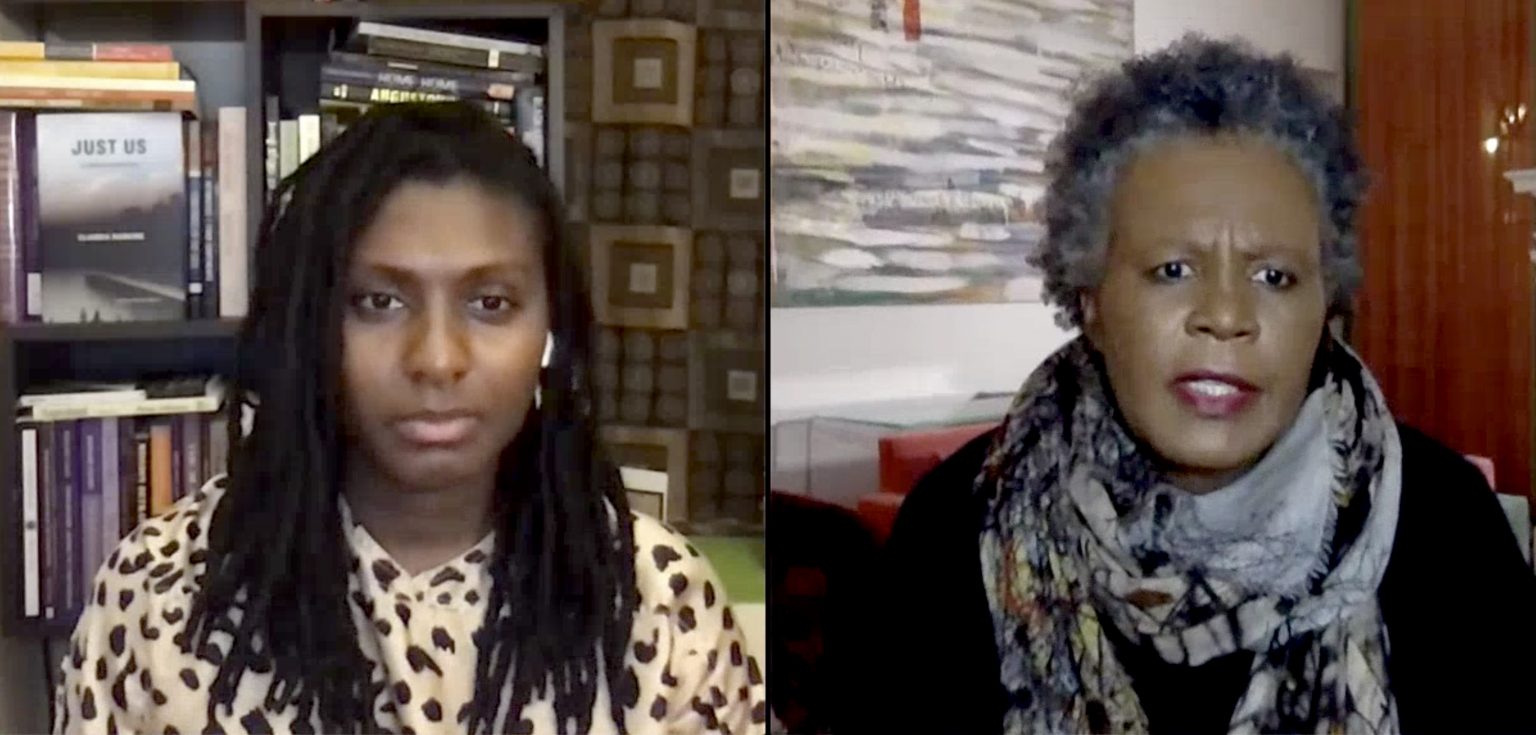At a Nov. 11 virtual event sponsored by Fordham and The Bronx Is Reading, which puts on the annual Bronx Book Festival, Rankine spoke about her new book Just Us: An American Conversation with Laurie Lambert, Ph.D., Fordham associate professor of African and African American Studies.
Through Just Us, Rankine narrates her personal experiences related to race and racism with white friends and acquaintances—and, in some cases, their own rebuttal to her stories.
“The book’s intention was to slow down these interactions so that we could live in them and see that we are just in fact interacting with another person, and that there are ways to maneuver these moments and to take them apart—to stand up for ourselves, to understand the dynamic as a repeating dynamic for many Black people, white people, Latinx people, and Asian people,” said Rankine, a Jamaica native who grew up in the Bronx.
Rankine has authored several books, plays, and anthologies, including Citizen: An American Lyric, which won the 2016 Rebekah Johnson National Prize for Poetry. Her other awards and honors include the 2016 MacArthur Fellowship, 2014 Jackson Poetry Prize, and fellowships from the Lannan Foundation and the National Endowment of the Arts. She currently serves as a chancellor for the Academy of American Poets and a professor at Yale University.
A Portal to Reflect on Your Own Life
At the evening event, Rankine said she wants her readers to use her as a portal to reflect on their own experiences and assess them, rather than simply live them. Reading Rankine’s stories can also serve as a restorative experience for some readers, particularly Black women, said Lambert.
“As a reader, I felt like I was being guided through these situations by a narrator I could trust—a narrator who understood a lot of my experiences as a Black person,” Lambert said to Rankine.
Naming ‘Whiteness’
The acknowledgement of a person’s “whiteness” can be perceived as threatening because it sounds similar to white nationalism and the violence associated with it, said Rankine. But “whiteness” is a necessary term when talking about race.
“The kind of clever thing that was done by white culture is the naming of white people as people. They are allowed to hide behind the generality of that statement. They are people and we are African Americans, Caribbean Americans, Latinx Americans, Native Americans,” Rankine said. “That’s how white people have negotiated their lives: We are just neutral people living our lives, and you all are people of color.”
This centralization of whiteness still stands in many places today, Rankine said. She cited the example of students and other people telling her they have received recruitment calls from white people who say they have perfect jobs for them, but they’re being “forced” to hire Black people to diversify their departments. This strategy to create equity is being falsely framed as something that takes something away from white people, said Rankine, who spoke at Fordham in 2016.
‘It Gives Me Hope’
Rankine acknowledged that it’s hard to confront covert racism. She’s had to train herself not to let things go—to stop saying she’s tired, that it will stop the conversation, that somebody else in the room should say something instead of her. It’s essential, she said, to hold people accountable because they make critical decisions with long-term effects on places like juries, boardrooms, tenure committees, and dissertation evaluation committees.
“We have been socialized so much towards silence and stability and not speaking up. And that’s what’s so amazing about the young people now—this new generation of high school students and college students,” Rankine said. “They are speaking up before things even get said. It gives me hope.”
Listen to the full conversation here.

